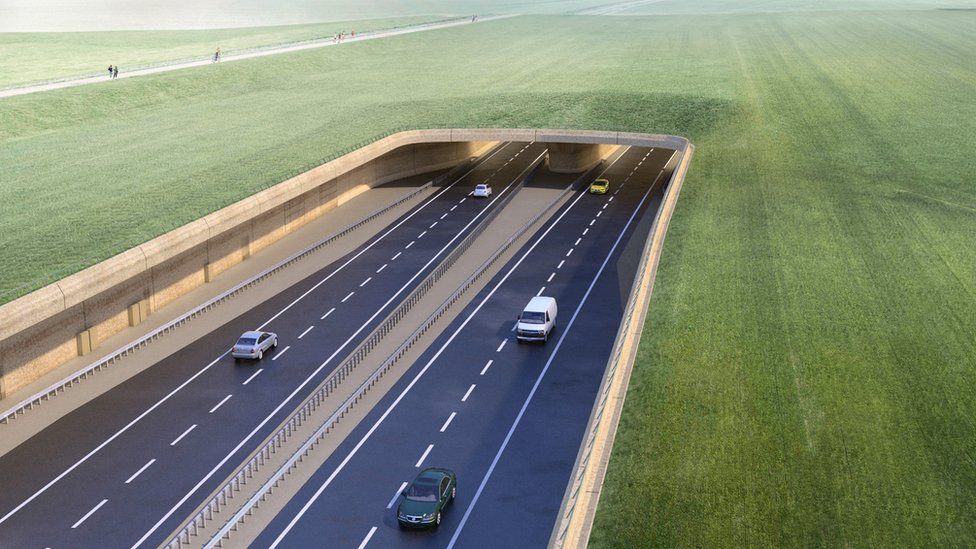
‘‘Eight miles of free-flowing, high-quality dual carriageway’ but you’ll wait forever for a bus
Whose £2.5 billion tunnel and dual carriageway past Stonehenge is the A303 anyway? A public road (no tolls), funded by the public. Will it have that other ‘public’ thing? Public transport?
After all, the A303 ‘improvements’ are designed to make life easier for motorists, all motorists. Car drivers, lorry and van drivers, even military vehicles – there are a lot of them on Salisbury Plain.
But not coach and bus drivers, because there aren’t any. Did I miss something, because as far as I could see, there are no express coaches, or even humble buses, running down the A303 to Exeter and the South West, past Stonehenge, from Salisbury.
This matters, because if this road was your most direct route from London and the South East to Exeter and the South West, or if you simply want to go that way because it’s so scenic, you have no alternative to using a car. Unless you retrain as a lorry driver.
‘Brits love buses’, said Buses Minister Richard Holden last November, launching the £2 cap on single bus fares. ‘They’re the most popular form of public transport in England, making up half of all journeys. The scheme will also take 2 million car journeys off the road and it’s fantastic to see so many bus operators signing up.’
But not on the A303, on the stretch from Salisbury to Exeter and the South West, past Stonehenge.
National Express does run coaches from London to Salisbury, which is 14 miles short of the A303 at Stonehenge. But if you wanted to carry on to the South West by coach, your route is via Southampton. (There is a direct railway from Salisbury to Exeter, but it is much slower than the, longer, route from Paddington to Exeter via Reading. Looking for alternative public transport options online, I was routed from Salisbury to Bristol, and then on to Exeter.)
But any sparkling new road (‘eight miles of free-flowing, high-quality dual carriageway between Amesbury and Berwick Down’) has to be a good thing? Highways England promise the ‘transformational and sensitive upgrade will tackle congestion on the notorious, traffic-clogged single carriageway section’, serve as ‘a significant step towards unlocking economic growth and improving journey times and reliability between the M3 and M5, and boost the economy of the South West.’
But those benefits do not apply to the 16.9% of households in the South East and the 16.8% of households the South West who do not have a car (or van). Nationally, according to Census 2021, 23.3% (5.8 million) of households had no car or van. So the A303 isn’t for them. (Neither is Stonehenge itself, restored to tranquility once the tunnel is built; if they can’t afford a car, they are not likely to be able to stump up £61.70 for a family ticket.)
What if, and this would be consistent with the imperative of encouraging people to use their cars less and use public transport more, government-owned National Highways were to include in their prospectus a subsidised hourly express coach service from London to Exeter via Salisbury and the enhanced A303? After all, the government already runs several railway companies. And good public transport must be part of the economic boost the upgraded road is designed to bring the South West.
Fat chance. It would only happen if the market decides it’s worth taking a chance on running those coaches.
The reality is that this monstrous project isn’t designed to benefit the wider public at all, in that it would deliver low carbon emissions, as an electrified railway might; only the narrower section of the car-owning public, more of whom will be attracted to use the road than would otherwise do so, according to the theory of ‘induced demand’, which has held up pretty strongly since the Second World War.
Crowdfunder to raise funds to take UK Government to court to reverse its consent for the tunnel and dual, carriageway within the Stonehenge World Heritage Site.
